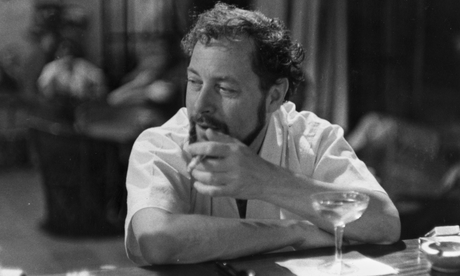
It's a niche idea, this one, at first glance. Why do writers drink – well, why does anyone? Why not doctors or lawyers, parents – or children? And why does Laing's book (part literary criticism, part biography, part travelogue, part memoir) focus on six male, American, drunk writers: Ernest Hemingway, F Scott Fitzgerald, Tennessee Williams, John Berryman, John Cheever and Raymond Carver, 20th-century greats we know a fair amount about already?
Laing answers these questions early in the book. "There are some things that one can't address at home," she writes (ominously); and writers "by their very nature, describe the affliction best". Don't they just. From Hemingway's enticing "nice good lovely gin" to the "brilliant" morning martini Berryman took as a cure for a hangover, the downward slope is apparent; and with two suicides and two deaths due to drink/drugs among these famous names, it's clear this affliction is not a trivial one.
Moreover, the lives of these writers intersect; letters fly between them; they are friends, at some point enemies. Laing fluidly and elegantly braids her insights into these authors' messy, dysfunctional lives with commentary about their work; she gives sociological and scientific background to the disease of alcoholism, and her own experience growing up in a household "under the rule of alcohol". And to give these meanderings structure she weaves these "restless lives" into an odyssey that stretches across North America, from New York via Key West and New Orleans to Port Angeles, Washington.
As in her previous book, To the River, which charts the river Ouse (and the end of Virginia Woolf's story), water plays a significant part. Here, Laing's authors use it to symbolise "cleanliness, purification, dissolution and death"; even the book's title is an ironic nod to the thirst that water ought to slake, but doesn't. "I'm taking a little short trip to Echo Spring," says Brick, a character in Tennessee Williams' Pulitzer-winning play Cat on a Hot Tin Roof (Echo Spring being both a brand of bourbon and a nickname for the liquor cabinet).
The bipolar nature of alcoholism – the exultant, grandiose highs, the denial and desperate lows – is all here. So, too, are the tragic ends. There are redemptive ones too, although fewer (there is no danger of Laing glamorising the subject matter). And while there is no straightforward answer to why writers drink, Laing explores the causes in admirable detail and astonishingly good prose – incisive, powerful, illuminating – that rivals the output of the authors she is writing about. And she can sure conjure a craving: "Click in a cube of ice. Lift the glass to your mouth. Tilt your head. Swallow it."

